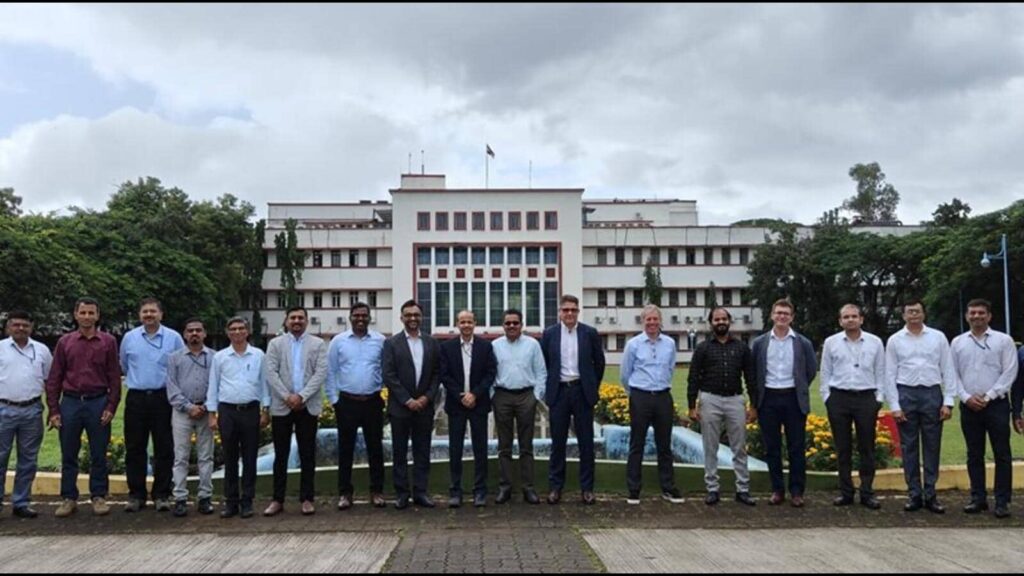CSIR-NCL & CPI (UK) start ‘Living Lab’ to bolster UK-India efforts to decarbonise pharma industry

PUNE: On Thursday, the CSIR-NCL (Council of Scientific and Industrial Research – National Chemical Laboratory) Pune and CPI (Centre for Process Innovations) United Kingdom (UK) have started a ‘Living Lab’ to strengthen UK-India efforts to decarbonise the chemical (pharmaceutical) industry; an initiative that could reduce emissions by up to 80% by adopting innovative manufacturing approaches, officials said.

The ‘Living Lab’ is part of the UK-India Net Zero Innovation Centre, and will act as a testbed for companies to explore and de-risk advanced pharmaceutical (pharma) manufacturing technologies so that greenhouse gas emissions can be significantly reduced, as per a statement released on Thursday.
The state-of-the-art ‘Living Lab’ facility at CSIR-NCL Pune will initially develop and demonstrate the potential of continuous manufacturing and solvent-free manufacturing methods. The ‘Living Lab’ is part of the Centre for Sustainable Continuous Manufacturing hosted by CSIR-NCL, which has three levels of industry engagement.
The Indian pharma industry owns over 20% of the global pharma supply chain and contributes to approximately 60% of the worldwide demand for vaccines. It also fulfils 40% of the generic drug demand in the US and supplies 25% of all medicines in the UK.
Dr Ashish Lele, director, CSIR-NCL, said, “The Indian pharmaceutical and fine and specialty chemicals’ industries have a strong culture of innovation and a drive to decarbonise. Continuous flow manufacturing coupled with digitalisation is an emerging powerful technology platform that can enable higher productivity, improved safety and reduced emissions of drug manufacturing processes.”
“The ‘Living Lab’ will be a unique testbed that will allow Indian chemical and pharmaceutical industries to validate the advantages of emerging technologies and help them transition from conventional batch manufacturing to continuous manufacturing, thereby contributing to a significant reduction in emissions. The involvement of technology partners, who own niche technologies relevant to continuous manufacturing, will strengthen the centre and expedite the translation towards commercialisation,” Lele said.
Dr Arun Harish, chief strategy officer, CPI, said, “At a time when global demand for treatments and vaccines has never been higher, the pharma industry must also act if it is going to achieve net zero. India makes such a huge contribution to the global pharmaceutical industry and plays a key role in manufacturing the treatments and vaccines that keep us healthy.”
“The potential for this project and the impact it could have on the world’s drive towards industrial decarbonisation is huge. By establishing the ‘Living Lab’, we have developed a new engagement model with industry to allow it to collaborate, test and develop business cases for new technology and innovation adoption at scale,” he said.
Officials said that recently, the ‘Living Lab’ has welcomed its first set of pharmaceutical companies in India to sign up for the partnership. Aarti Industries, Glenmark Life Sciences, USV, Anthem Biosciences, Corning and GMM Pfaudler will work together with CPI and CSIR-NCL to create world-leading manufacturing practices. Three more large companies, including Sun Pharma, are in the process of joining this partnership imminently. Having these industries as partners in the development of an ecosystem for pre-competitive research on decarbonisation using continuous flow synthesis, which is the strength of CSIR-NCL, with digitalisation support from CPI, will make the Centre for Sustainable Continuous Manufacturing quite resourceful and unique, officials said.
CSIR-NCL will soon announce an ‘Industry Consortium on Continuous Manufacturing’ that aims to involve mid-size Indian fine and specialty chemicals’ industries and also pharmaceutical intermediate and medicinal compound manufacturers, who will have access to a wide range of flow synthesis facilities at CSIR-NCL. This industry consortium will also be one of the activities of the centre.




